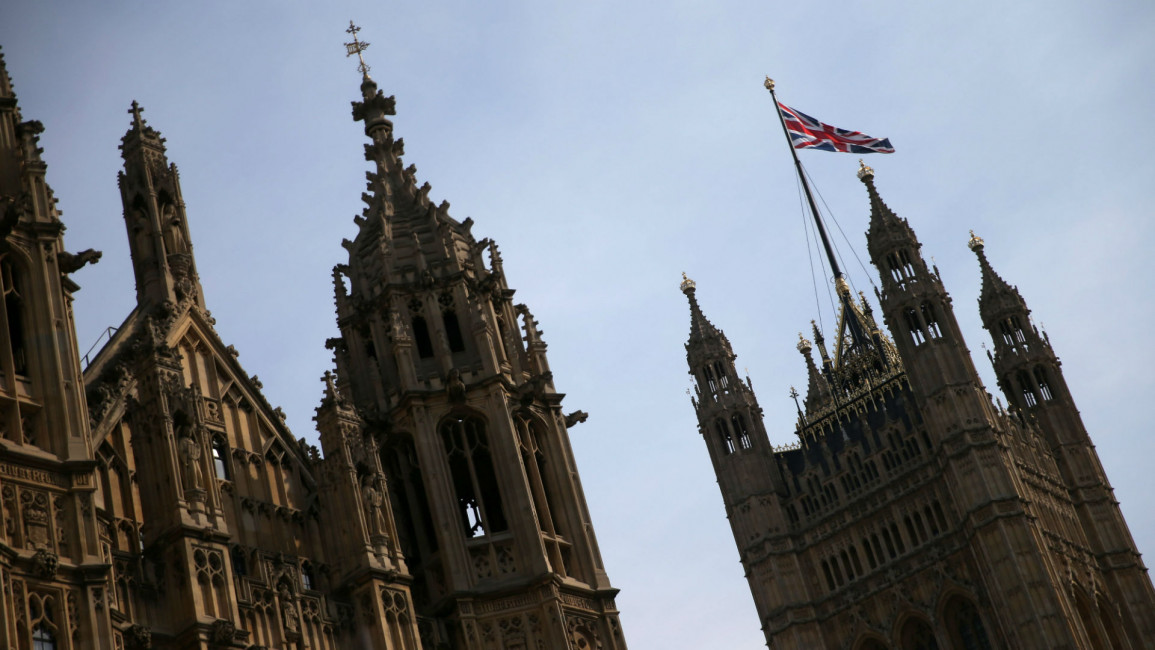UK House of Lords to host 'pro-Assad' Syria conference
The UK House of Lords will host a Syria conference this month organised by a self-styled research group that has championed Bashar al-Assad's regime narratives at past events, analysts and activists have said.
The European Centre for the Study of Extremism (EuroCSE) announced this week it will hold a conference titled, "The End of War is Syria? Reconstruction, reconciliation, extremism and foreign policy" at the UK parliament's upper house on 30 October.
The group has organised similar forums in the past with a pro-Syrian regime bias, including speakers accused of backing Bashar al-Assad's agenda.
Cambridge University students and Syrian activists complained last year when a EuroCSE conference, which included regime ministers, was planned to be held there.
It said the EuroCSE group "appears to exist primarily to spread propaganda for the Assad dictatorship".
When details emerged of EuroCSE's pro-Assad bias, two conference speakers - former Labour leader Lord Kinnock and Lord Desai - withdrew from the 2017 event, according to The Times, which was eventually held at the National Liberal Club in Westminister.
However, the EuroCSE's website still lists Lords Kinnock and Desai as board members.
Speakers at the October conference include journalist Peter Oborne, Baroness Cox, and EuroCSE founder Makram Khoury-Machool.
Talks include: "Is it time for Britain to give up on Syria's rebels?" (Oborne), "Do voices from Syria matter?" (Cox) and "Why did the USA and its allies fail to overthrow the Syrian state, and what is the US interest there?" (Prof. Daniel Faraci).
Despite past EuroCSE's claims that is does not promote regime propaganda and attempts to provide a balance of views during its debates, none of the speakers are known supporters of Syria's opposition - although former Archbishop of Canterbury Rowan Williams (listed on EuroCSE's website as a patron) has supported Syrian humanitarian causes in the past.
Radwan Ziadeh, a Syria expert at Arab Center Washington (ACW), said there are several indications from the programme that the conference is designed to promote a pro-regime agenda.
"[EuroCSE] is quite a new organisation, and one of those to emerge in the past few years in favour of the Syrian regime narrative. None of the speakers are well-known in the Syrian community or considered experts in this field," he said.
He said the number of Christian and "anti-extremist" personalities in EuroCSE fits with false pro-Assad claims that the regime is the "protector" of Syria's religious minorities.
|
|
"I believe this is the worst narrative the media can pick up on. I don't believe Christian Arabs are in favour of Assad. They have lived side-by-side with other religious groups, including Muslims, for centuries in Syria and have never been in favour of genocidal regimes like Assad's," Ziadeh added.
Among the members of EuroCSE is Peter Ford (Senior Counsellor Fellow), who has used is reputation as a former ambassador to voice pro-regime arguments in British media, including denying Assad's involvement in April's chemical attack on an opposition suburb of Damascus.
He is also the director of British Syrian Society, which was founded by the father-in-law of Bashar al-Assad and a familiar face at pro-regime forums.
Ziadeh pointed out that the image of a bombed-out Syrian street used on conference's flyer shows his home town, Daraya, a Damascus's suburb that witnessed a harrowing regime siege and daily shelling and bombing.
Once the regime was re-taken by Assad's forces, the population was emptied with almost all inhabitants being unable to return to their homes, a pattern witnessed in other former opposition strongholds that were recaptured by the regime following so-called "evacuation deals".
The focus of the conference on reconstruction has been the new premise of regime premise of the conference that the west should provide financial support to the Syrian regime for reconstruction.
This is a particularly bitter pill for Syrians to follow, after recent laws appear designed to block re-entry for millions of refugees living outside Syria and reconstruction aid will "reward" the regime, after destroying much of Syria.
"I think the regime's new focus has been that the war is over and the West should help with reconstruction," said Zeidan.
"The Assad regime is not interested in receiving any of refugees, and they need money to pay loyalist militias and Iran. Money should not be a reward for war crimes and I think the international community should be clearer on this."
Much of the international community insist that reconstruction aid should be dependent on the formation of a transitional government.
Syria's war broke out in 2011, when the Syrian regime gunned down peaceful protesters leading to mass defections from the military. More than 500,000 people have died since, the vast majority civilians killed from regime bombing and shelling.



